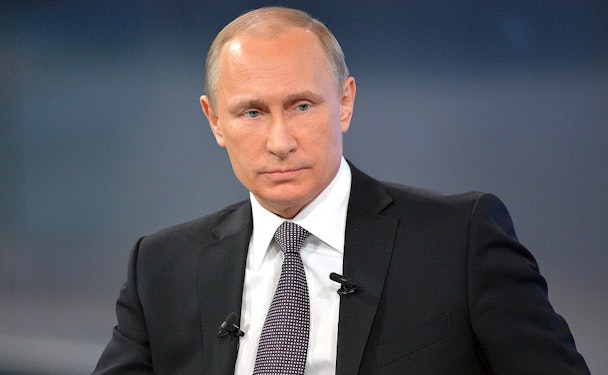Russia VPN ban a ‘major blow to internet freedom’ says Amnesty International
A new law signed by Russian president Vladimir Putin banning online anonymisers and virtual private networks (VPNs) is a major blow to internet freedom in Russia, Amnesty International has said.

President Putin passed a law that bans Russian internet users accessing banned sites using VPNs
The law, signed by Putin on Sunday (30 July), prohibits technology that allows internet users to access websites banned in Russia, including VPNs and anonymisers.
The same law gives Russia’s communications regulatory body, Roskomnadzor, additional censorship powers. After the law comes into force on 1 November, Roskomnadzor will be able to restrict access to anonymising services. The law also creates an official register of online resources to which access is restricted in Russia.
The law has already been approved by the Duma, the lower house of parliament. Leonid Levin, the head of Duma's information policy committee, has said the legislation is not intended to impose restrictions on law-abiding citizens but is meant only to block access to "unlawful content," RIA news agency said.
However, privacy and freedom of information advocates see the move as another way for the Russian government to restrict access to political content that it disagrees with.
In 2015, it became mandatory for all user data from Russian citizens to be stored in Russian-based servers, and last year another law was passed making it necessary for internet service providers to retain traffic data for up to a year.
Denis Krivosheev, Amnesty International’s Europe and Central Asia deputy director, said: “With the Russian authorities increasingly intolerant of dissent, technologies that help internet users evade censorship and protect their privacy are crucial for freedom of expression online.
"This is the latest blow in an assault on online freedom which has seen critical sites blocked and social media users prosecuted solely for what they post online, under vaguely written anti-extremism legislation. The ban on VPNs takes this shameful campaign a whole step further."
The decision by Russia came just hours after reports emerged that Apple has removed the majority of VPN apps from the App Store in China, following regulations passed earlier in the year that require such apps to be authorised by the Chinese government.
VPN apps let internet users circumvent the country's strict censorship system, which blocks websites including Google, Facebook and Twitter.
Star VPN, a provider which said on Twitter that its app had also been removed, called the move a "dangerous precedent".
Krivosheev said Apple's decision to remove the apps in China has "aided the online censorship efforts of the Chinese government and jeopardised the rights of countless internet users".
Apple issued a statement to TechCrunch on Sunday explaining its decision to pull the apps from the App Store: “Earlier this year China’s MIIT announced that all developers offering VPNs must obtain a license from the government. We have been required to remove some VPN apps in China that do not meet the new regulations. These apps remain available in all other markets where they do business.”

